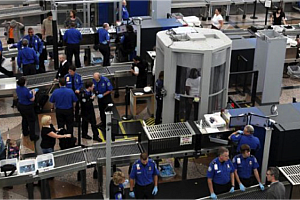The Small Business Administration (“SBA”) recently proposed regulations to implement the sections of the Small Business Jobs Act of 2010 regarding multiple award contracts and contract bundling. The proposed rule would require agencies to consider the use of small business set-asides and reserves for multiple award contracts. The proposed rule also imposes procedures to discourage agencies from bundling and consolidating contract requirements. The proposed rule was published on May 16, 2012 at 77 Fed. Reg. 29130. SBA seeks public comments by July 16, 2012.
Multiple Award Contracts
Procuring agencies will be required to consider the use of small business set-asides and reserves for multiple award contracts. A contracting officer may: (1) set-aside one or more of the multiple award contracts for small businesses; (2) set-aside certain task or delivery orders issued under multiple award contracts for small businesses; or (3) reserve a multiple award contract for a small business. These procurement actions may be taken for small businesses or any category of small business, such as a Woman-Owned small business concern. If the contracting officer decides not to use a set-aside or reserve, the contracting officer will be required to explain and document this decision in the contract file.
SBA’s proposed rule clarifies that a “multiple award contract” includes Federal Supply Schedule and other multiple award contracts issued by the General Services Administration (“GSA”) or agencies granted Multiple Award Schedules contract authority by the GSA, multiple award task-order or delivery-order contracts issued in accordance with FAR subpart 16.5, and any other indefinite delivery/indefinite quantity (“IDIQ”) contract entered into with two or more sources pursuant to the same solicitation.
SBA recognized that multiple award contracts frequently include work covered by multiple North American Industry Classification System (“NAICS”) codes. Currently, a contracting officer must select the NAICS code that represents the greatest portion of the required work. SBA now proposes that contracting officers may assign multiple NAICS codes and size standards for a multiple award contract solicitation. The contracting officer would identify which NAICS code applies for each portion of the solicitation requirement. The contracting officer would also be required to assign the appropriate NAICS code for each solicitation for a task or delivery order issued under the multiple award contract.
Agencies Must Justify Contract Bundling and Consolidation
SBA also proposes to discourage an agency’s consolidation or bundling of contracts. SBA defines a bundled contract as a consolidated contract where the combined requirements were or could have been performed by small businesses. With respect to consolidation, the proposed rule would prohibit an agency from conducting an acquisition that is a consolidation of contract requirements, unless the senior procurement executive or chief acquisition officer identifies the negative impact of consolidation on small businesses and justifies the consolidation by showing that the benefits substantially exceed the benefits of each possible alternative approach that would involve a lesser degree of consolidation.
With respect to bundling, the rule encourages agencies to post the list of bundled contracts and rationales for them before soliciting offers, rather than after awards have been made. Agencies wishing to bundle contracts will be required to publish on websites a list of bundled contracts and the rationale for doing so. Solicitations for multiple-award contracts above the $2 million substantial bundling threshold must include a request by the agency for offers from any responsible source, including responsible small business concerns and teams or joint ventures of small business concerns. Further, the proposed rule exempts certain small business teaming arrangements from SBA’s affiliation rules.
Other Changes
Additional changes proposed by SBA:
Clarify that after a merger or acquisition, there is a requirement for both the acquiring and acquired firms to recertify their size status, including when a participant in a joint venture is involved in a merger or acquisition.
Authorize the set-asides of blanket purchase agreements, which are not considered contracts, for small businesses.
Clarify that certain costs should be considered as subcontracting costs, rather than costs for materials, by removing the language “or services” in order to provide clarity on costs that should be considered subcontracting costs.
CONTACTS
From McKenna Long & Aldridge
For further information regarding the topic discussed in this update, please contact one of the professionals below, or the attorney or public policy advisor with whom you regularly work.
Richard B. Oliver
213.243.6169
Andrea Fontana
213.243.6159




